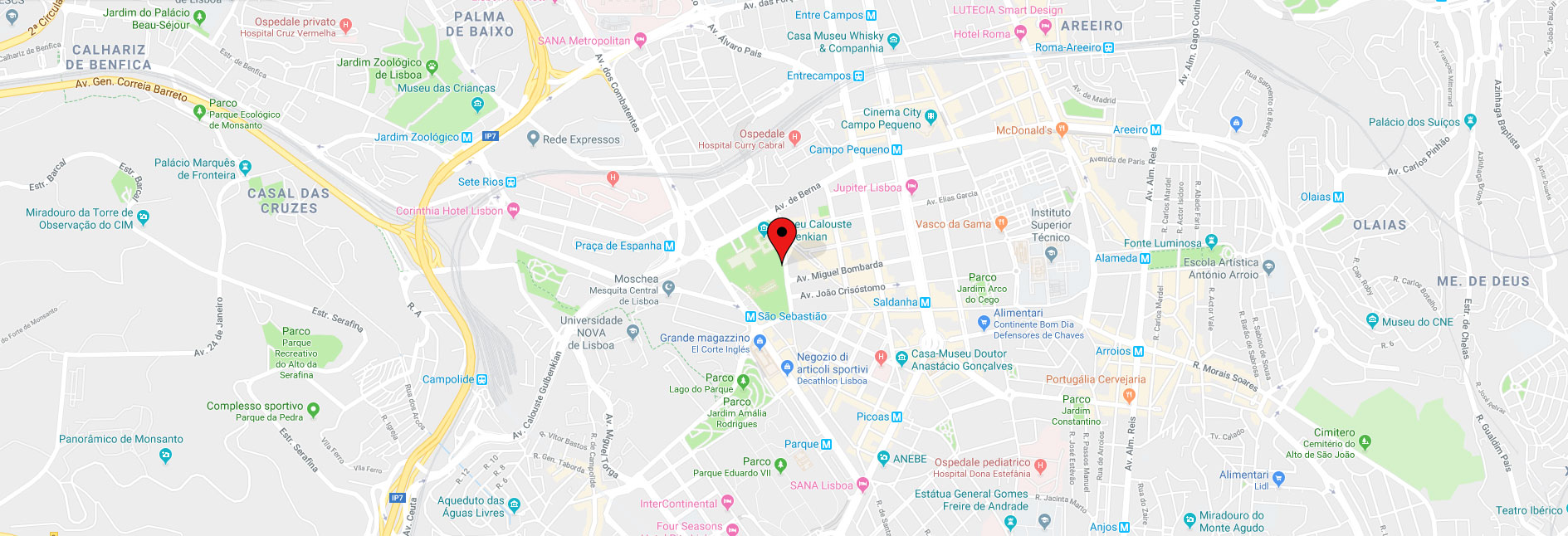Venue
Host City: Lisbon, Portugal
Lisbon, a historical city full of stories to tell, where the sun shines 290 days a year and the temperature rarely drops below 15C. A city where you feel safe wandering around day or night, where the cuisine is dedicated to creating over a thousand ways to cook the beloved bacalhau (salted cod), and where you’ll find hotels and restaurants to suit every taste. Discover Lisbon, a city full of authenticity where old customs and ancient history intermix with cultural entertainment and hi-tech innovation. Lisbon is ageless, but it loves company, as you’ll find out if you meet someone and ask them to explain, with lots of gestures and repetition, where the best place is to listen to Fado. After all, Lisbon is famous for its hospitality and the family-like way it welcomes visitors.

Directions
Calouste Gulbenkian Foundation, Av. de Berna, 45 A, 1067 – 001 Lisbon

Getting there
Public transport:
-
Underground : S. Sebastião (blue and red lines)
-
Buses: 713, 716, 726, 742, 746, 756
Venue: Calouste Gulbenkian Foundation
The Calouste Gulbenkian Foundation was created in 1956 by the last will and testament of Calouste Sarkis Gulbenkian, a philanthropist of Armenian origin who lived in Lisbon between 1942 and the year of his death, 1955.
Established in perpetuity, the Foundation’s main purpose is to improve the quality of life through art, charity, science and education. The Foundation directs its activities from its headquarters in Lisbon and its delegations in Paris and London.
The Foundation has a museum, which houses the Founder’s private collection, alongside a collection of modern and contemporary art; an orchestra and a choir; an art library and archive; a scientific research institute; and a garden, in a central area of the city of Lisbon, where educational activities also take place.
In conjunction with cultural activities, the Foundation fulfils its mission through innovative programmes that develop pilot projects and support, by providing scholarships and grants for other institutions and social organisations.
